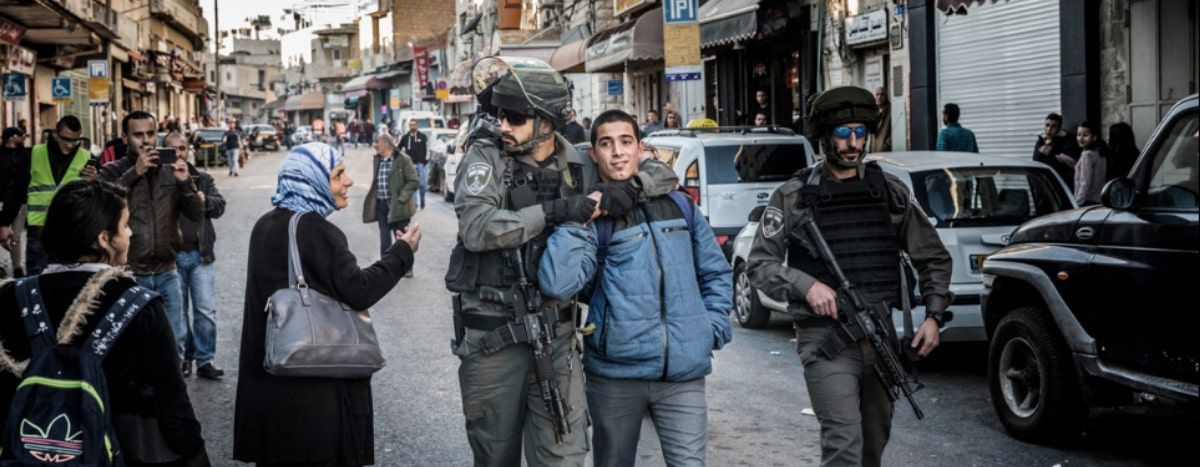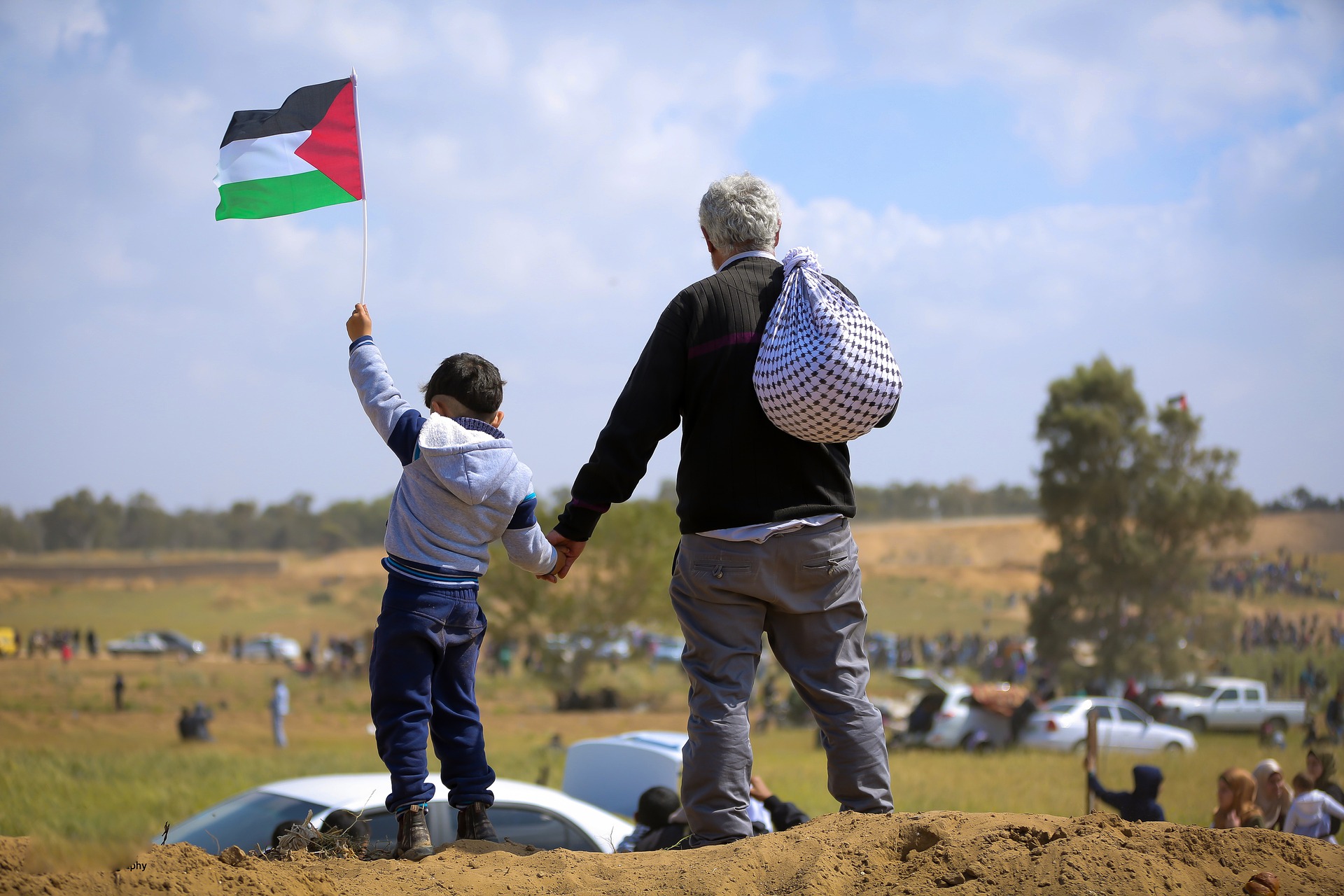
Dreaming of Palestine
Published on
Translation by:
Deirdre Della PaceIn sociology, a diade (from the Greek, Dyas, “pair”) is a group of two people, the smallest social group possible. As an adjective, diadica describes the interaction between the two. Diadiche is a project that was born from a will to communicate with people in revolt from North Africa and the Middle East in the form of interviews. Diadiche will periodically meet with everyday people who are part of movements that are fighting for dignity and change. These didn’t stop at the end of 2011. In fact, the individuals that are still involved sometimes demonstrate the strongest ideals: that change is possible. These are people who are struggling for their ideals in difficult situations, and they are well-worth listening to. We hope you'll enjoy reading.
“I don’t have a dream. Of all the things I’m missing, a dream is the thing that, more than any other, has left an empty space inside of me. My grandparents had a dream of returning home, of huddling around the rusty keys of their old houses. My parents had hoped that the Oslo Accords would become a reality, that with patience they would [be realised]. My generation dreamed of taking back liberty at any price. You see, I look at my children and I would like to have a dream for them. I don’t have one, and I can’t understand what they could possibly dream of. How can you live your life if you don’t have a dream? Palestine has always existed in the dreams of its people; what will the Palestine of my children be like?”
Qusay studied in Perugia, so he speaks perfect Italian. He worked for years as a teacher. Like all Palestinians, he has fought his battles. It was his generation that was in its twenties during the Second Intifada. He paid a high price for his dream.
“I argued with my father, an old militant of the Popular Front, every day. My mother cried while we shouted at each other in the kitchen. The way he viewed the world, twenty years ago it seemed that Hamas was more of an enemy than Israel. Since then my father has passed away and I would like to ask for his forgiveness, because regarding Hamas he was right. Not that I was one of them at the time, quite the contrary - but after Ariel Sharon’s trip to Temple Mount in 2000, I was furious, like everybody else I knew. I shouted that they could stick the Oslo Accords up their ass, they had been tricked, that it was time to take back their freedom. He was right, we had let ourselves be massacred; we were convinced that we could have arrived at a solution. It didn’t happen.”
Palestine has always existed in the dreams of its people; what will the Palestine of my children be like?
Qusay was surprised in 2011; wounded, but alive. “We were watching the television with our mouths wide open, we couldn’t believe our eyes. The fact that it was even possible to do so was a miracle. We had our Ben Ali, our Gaddafi. The break-away groups of Fatah and the OLP weren’t very different in our eyes. They legitimised themselves using the Israeli occupation, which in reality was their main ally. They had sold our lives for their own power. Hamas were different, but deep down even they had taken the Strip. They had broken up the Palestinian people to consolidate power for themselves too. They were less corrupt than Fatah, at least at the beginning, but the logic of power was the same."
“We, the oldest and youngest members of the community, organised the Gybo movement. It was our springtime. It wasn’t a mass movement like in other countries, because many people were still clinging to almost clan-like ideas of belonging to the traditional parties, usually as a result of the family they were from. But we were also present - and after many years Gaza and the West Bank had a platform of young people who were asking the same questions. They had massacred us, and for once it hadn’t been the Israeli people, but instead Hamas and Fatah who had held us back, beaten us down. And in the cases of Vittorio Arrigoni and of Juliano Mar Khamis in Jenin, they even shot bullets. I’m sure of it. Today, on the ten-year anniversary of the Arab Revolution, I read special reports and files on the topic, and sometimes I think: we don’t even have the consolation of being remembered.”
The Knife Intifada
Qusay isn’t surprised by the latest massacre. “Sharon succeeded with one of the biggest changes of narrative in history. He understood what was happening in the world after the attack on the Twin Towers. He succeeded in turning the situation around. He made it seem as if the Palestinian resistance were terrorists instead of people struggling for liberation against a colonial system, against the apartheid of a military occupation. Netanyahu completed the work, ready to do anything for power. He institutionalised the worst aspects of Israeli society.”
“We’re here, tired, divided. Many in the West Bank have no more time. They want to live. They saw their dreams pass them by, and they only have one life. They accept it and come to terms with the gritty reality. In the end, this has pitted the Palestinian people against each other. A bit of consumerism and relative peace, though without dignity, has caused many people to lose their spark. And those who live in the refugee camps have nothing to lose. They are constantly getting angrier and more divided from the rest of society.”
There's no sense of perspective in Palestine anymore
“There's no sense of perspective in Palestine anymore. Not on a national scale, because there is a steadily growing number of people who realise that their dream of an independent state has been torn apart. And neither on an international one, because the power Israel has over the narrative manages to manipulate global discourse. In doing so, it brings us all further away from the real heart of the matter: respect for human rights. Everything else - no really, everything else - should come afterwards, anywhere in the world.”
“Nevertheless, Qusay had still come to protest on the streets over what had happened today: “You can’t not do it, even if you have a heavy heart. They’re slaughtering the people of Gaza, as always. Hamas wanted to be part of the struggle for Jerusalem. Struggle here, doesn’t mean a national or international political movement, but instead refers to families who desperately resist unfair and vile expulsion from their land.”
None of the European or international governments have clearly asked for the evictions to be stopped. Instead, you’re there preaching about ‘complexity’.
“The complexity of a family harassed by colonialists, who want their own home back, is something primitive, fierce, and violent. But you don’t see this, you don’t want to.”

“I see children with no dreams. Instead, they are filled with rage, and they let themselves be killed. They named it the 'Knife Intifada' at a certain point. To me, it seemed like ritual sacrifice. Empty bodies that let themselves be torn down, so that with their death they can give meaning to life. I look at my children and I hope that they will have their own dream, though I don’t know what it will be. But a life without dreams isn’t worth living, in Palestine or anywhere else. Of one thing, however, I am convinced: there are some lives you can't understand unless you've carried their burden.”
This article is published in an editorial partnership with QCodeMag. The piece, re-edited by Christian Elia and the editorial staff at Cafébabel was originally published in QCodeMag on 17 May 2021.

Cover image: ©Gianluca Cecere
Translated from Sognando Palestina



